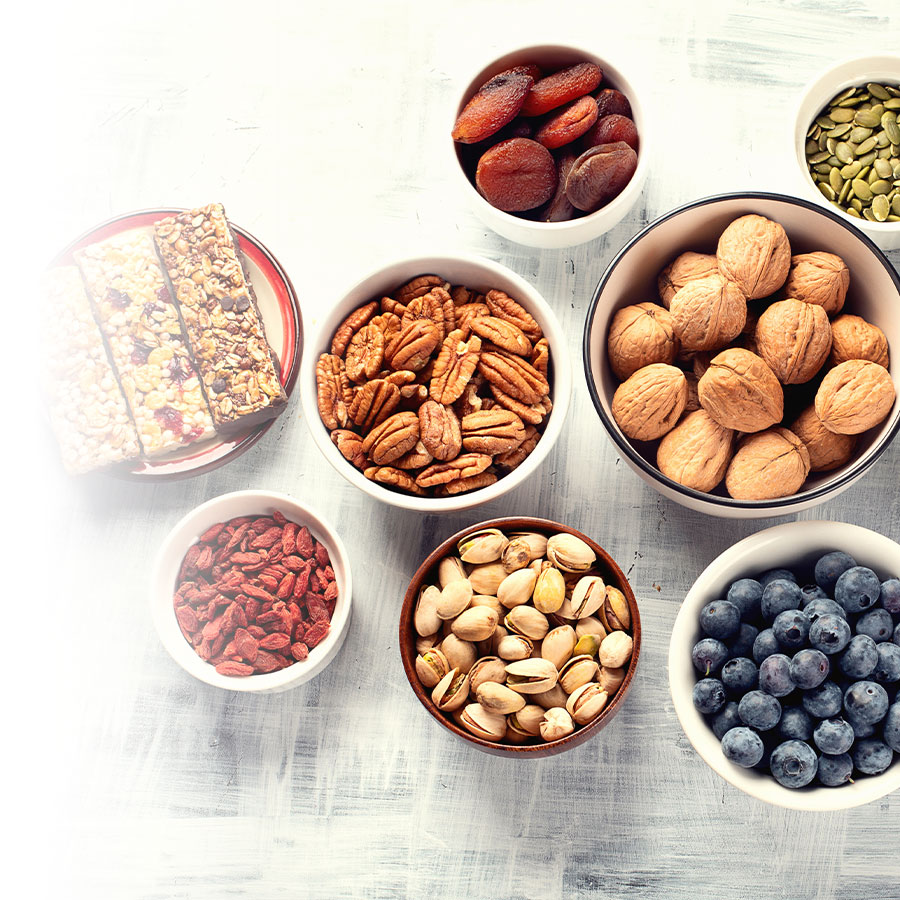Individuals affected by diabetes understand the importance of a balanced diet. Here are a few basic notions you should know to make informed choices.
Diabetes is a chronic disease that affects a great number of Canadians. Several individuals among them are overweight, which in some cases, has contributed to the onset of the disease. Additionally, excess weight and poor diet are major obstacles to optimal blood glucose management. The basis of treatment for diabetes includes making the following lifestyle changes: diet, weight loss, and physical activity. Medication becomes necessary only when these measures are insufficient.
Making good choices
You must make choices about the amount and quality of the food you eat every day. Eating well is not that difficult; in fact, here are a few tips that you can apply on a daily basis:
- Drink plenty of water and avoid sweet drinks such as juice and soft drinks.
- Drink alcohol with moderation.
- Eat a healthy breakfast and do not skip meals.
- Avoid all foods that are poor in nutrients and high in calories, fat and sugar such as junk food, pastries, chocolate, candies, etc.
- Eat more fruit, vegetables and fibre-rich foods such as whole wheat grain products and legumes.
- Make it a habit of eating slowly, chew your food well and take the time to savour it.
- Stay attuned to hunger cues or the signs of satiety your body sends you. Do not wait until you are very hungry to eat, and stop eating when you feel full.
- Avoid snacking except if you are truly hungry.
- Monitor your blood glucose closely. Opt for a blood glucose meter that allows you to store additional data electronically. Write down relevant dietary information such as what and how much you ate. This will help you to observe the impact of your diet on your blood glucose and to make the necessary changes.
Snacks
Contrary to popular belief, people with diabetes do not have to integrate snacks into their routine; however, they may have some advantages such as:
- contribute to meeting nutritional needs
- calm a craving
- prevent overeating during meals, and
- prevent hypoglycemia (blood glucose < 4 mmol/L)
However, keep in mind that they can affect blood glucose and contribute to weight gain, which is considered unadvisable for diabetics. Therefore, it is important to make wise food choices regarding snacks by choosing the "healthy" ones. Choose fibre and protein-rich foods that are low in fat and sugar.
Here are a few examples of healthy snacks:
- fruit
- raw vegetables
- nuts
- a hard-boiled egg with whole wheat crackers
- yogurt or any dairy product that is low in fat, or
- a bowl of cereal
As a snack, you can also purchase food supplements specially made for people with diabetes. They are balanced and formulated to meet the Canadian Diabetes Association nutritional guidelines.
Don't hesitate to speak to your pharmacist for additional information about diabetes, lifestyle changes, medication or blood glucose monitoring.

